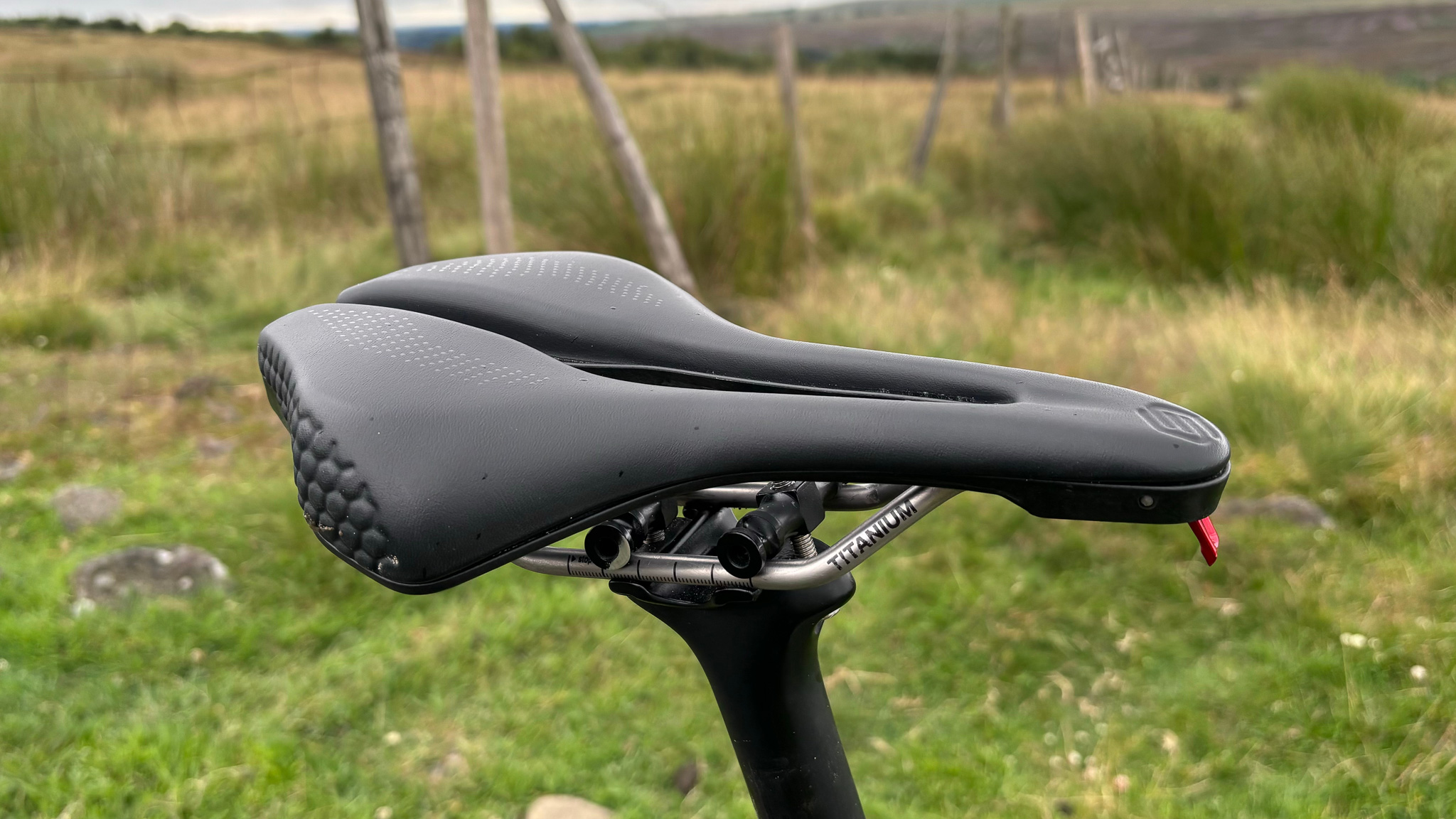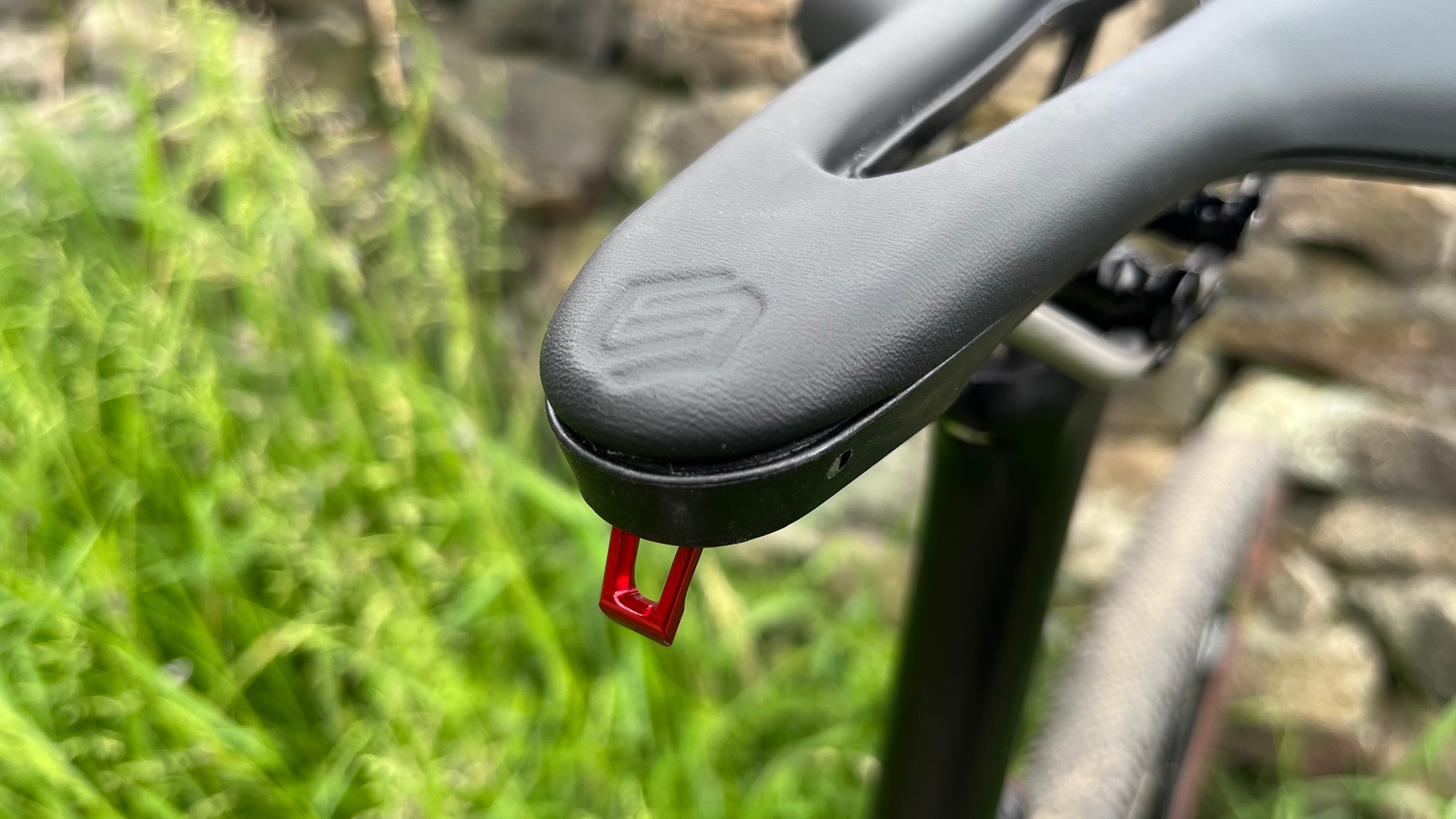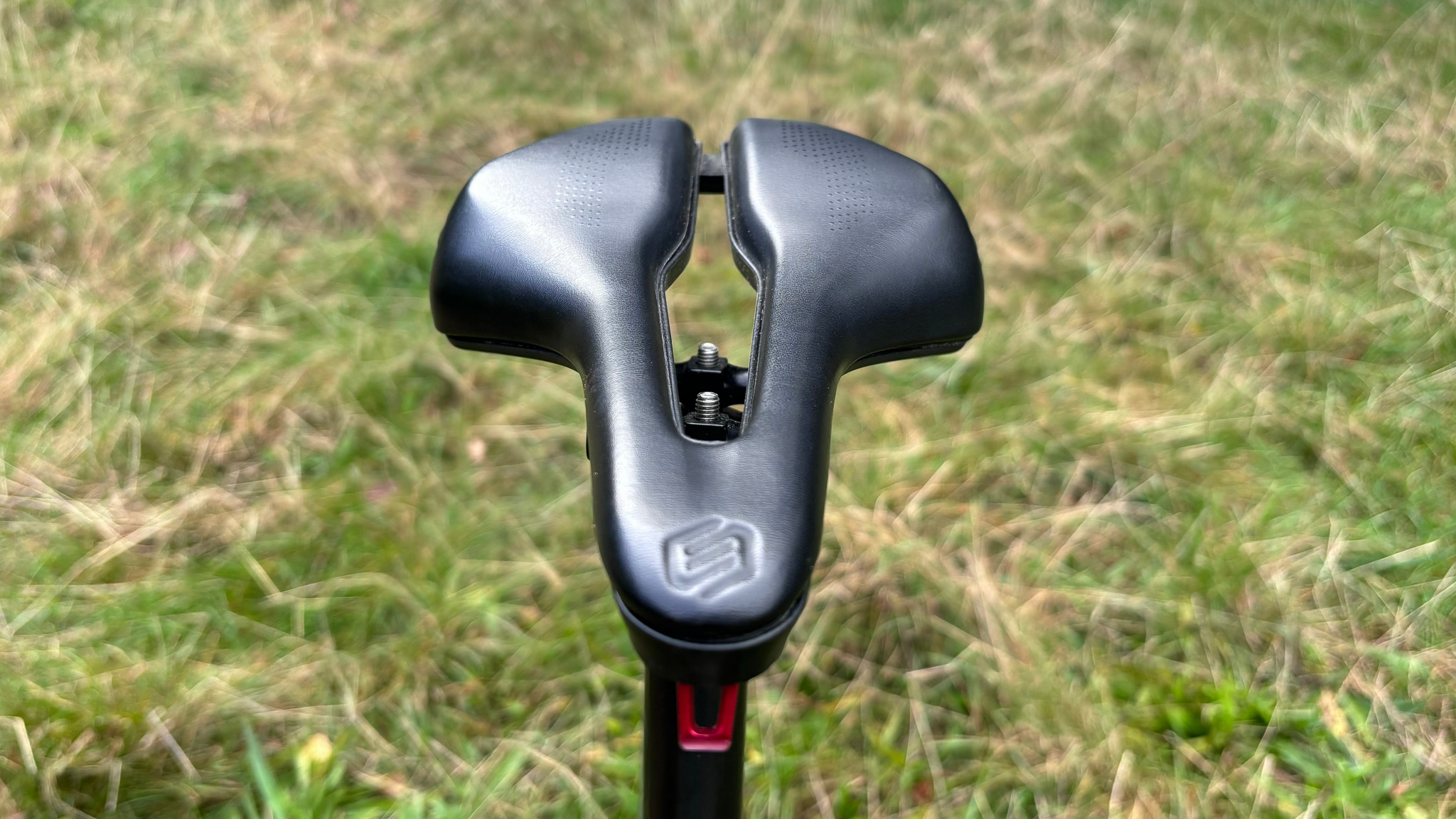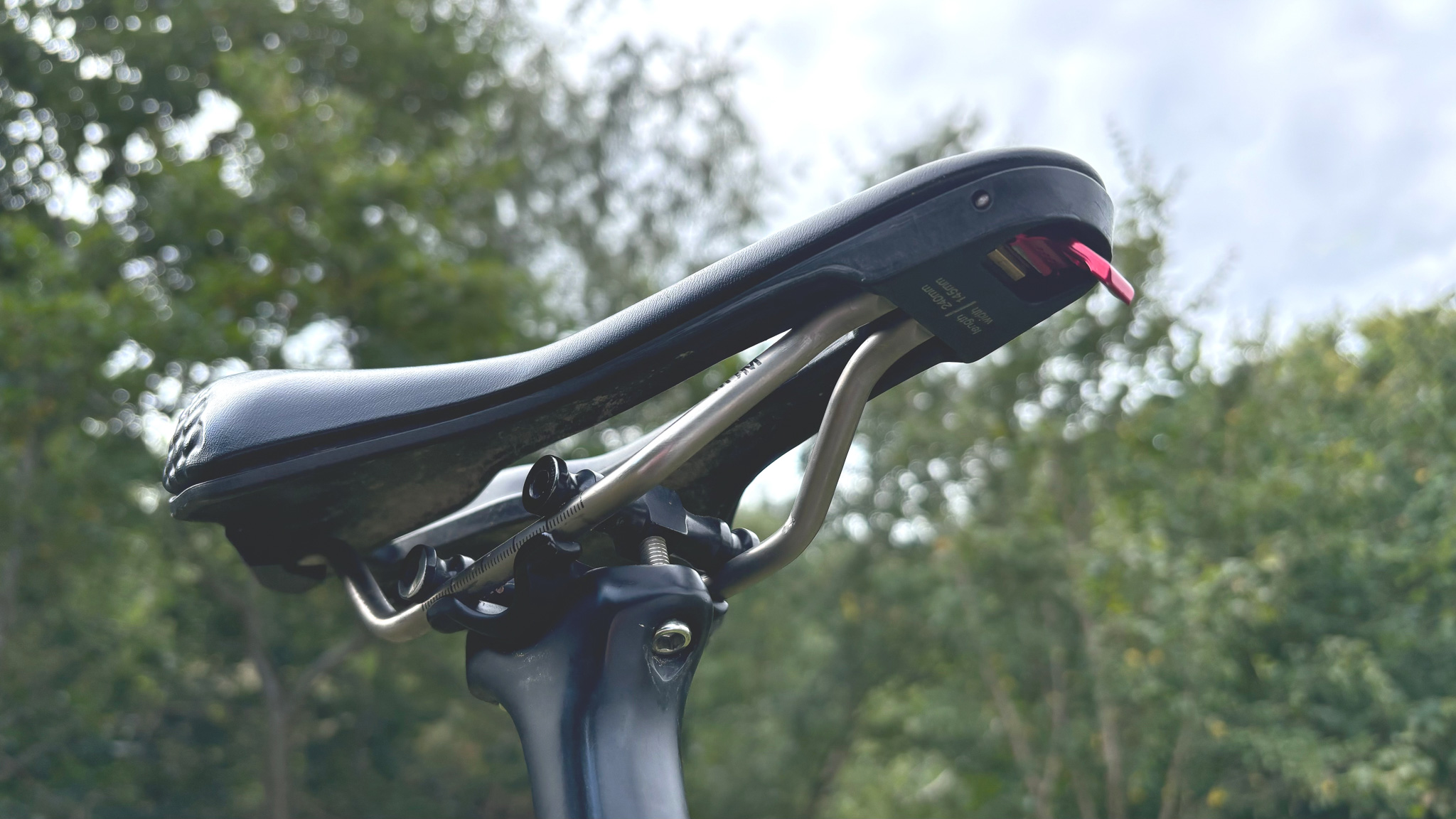
We have featured products from the innovative Dutch brand ERE Research before, like its Tenaci GA40 gravel wheels, but never one of its saddles. Like the wheels, there is more to the saddle than meets the eye, with interesting technical features. At first glance, the lightweight, short-bodied, but well-padded saddle ticks many boxes, but how does it compare to the best gravel bike saddles?
Unusually, the Tenaci TT saddle is sold as a unisex saddle. ERE says that extensive ongoing research with the Stanford University of Medicine has shown them that there is no standard for people's pelvic regions and that riders just need suitable comfort solutions regardless of their chromosomes.

Features
The Tenaci TT is their answer for gravel riders who want more comfort across rougher terrain. It uses many of the same features they use on their road range to save a few grams but with a thicker padded top section. The TT I had on test uses titanium rails and a split PA12 carbon fiber base material with a large pressure-relieving cutout, which not only keeps the weight down but adds more flexibility and comfort than a cheaper plastic hull. The TT is the mid-range option, which comes in at £115 / €136, with a lower priced alloy railed T version costing £82 / €97 and a range-topping full carbon version called the CT at £199 / €195
It comes in two widths: the medium version I had on test, which is 145mm wide, and the larger 157mm size. Measuring your sit bones here is crucial and will make a big difference in finding the right saddle. Both are 240mm long, which is relatively short. This trend is popular on road bikes as it lets riders ride with a wider hip angle and, therefore, in a lower, more aero position. This is less crucial off-road, but handily, it works well with the steeper seat angles you'll find on XC and trail bikes and helps keep your weight in the correct position on steep gravel climbs.
Alongside its flexible hull and extra padding, the Tenaci TT has what they refer to as a Comfort Trigger to help riders fine-tune the amount the saddle flexes under their weight. The trigger is a red lever found at the front of the saddle with three fixed settings. It adjusts the amount of tension the rails are under by 10nm and offers up to 10mm of saddle flex adjustment. It's not something I've seen on other modern saddles, but it works similarly to the original Brooks leather saddle that had a simple threaded bolt mechanism that enabled you to adjust the saddle rail tension, though it was far more industrial and heavy than ERE’s interpretation.

Performance
Saddles can be hard to review, as saddle shape is a very personal preference. It's always worth trying a few different shapes if you can, and also keep in mind that your choice of shorts and chamois can also make a big difference in comfort. I've always been fond of longer, narrow-ish saddles with minimal padding for gravel and road duties, and although I have tried short saddles from other brands in the past, I never really got on with them for various reasons.
Not so here I'm happy to report. Fitting was as straightforward as you would expect, and for my first few rides, I rode with the saddle in the middle of the rails and completely level to the ground as I thought it would be a good neutral position to start from. I experimented with moving back and forward slightly, as well as dipping the nose a touch, but found the most comfortable position was just slightly forward of my original central position, which was completely flat.

Whether I was in the drops, sat upright on climbs, or even in as close to an aero tuck as possible on the FSA Pro Wing AGX bars I have been using, I found the saddle comfortable in an unremarkably boring way. By that, I mean I barely noticed it was there most of the time, which is as high praise as I think you can give a saddle. I found it most comfortable when using shorts with larger seat pads like the Ciovita Cargo bib shorts, but it wasn't exactly uncomfortable using slimmer pads either from brands like Mavic, Santini, and Castelli.
I was also worried the padding might be too much, as I've spent the best part of 25 years riding hard and narrow saddles and have found excess padding in the past to be less comfortable, especially over longer rides, as the foam material compresses over time. The padding used here is relatively firm, which does a great job of balancing shock absorption but without deforming too much under pressure, which can lead to discomfort as it puts pressure on areas of delicate tissue and remained comfortable and supportive for me.
The Comfort Trigger offers three clicks of adjustment and is noticeable going from the fully open to fully closed settings, though if I'm honest, after a couple of rides, I rarely changed it. I found I really liked the middle position, as it offered the ideal amount of hull flex for me, and it's not something I felt I needed to change mid-ride. Having said that, having the ability to tune the feel is a useful feature, but mainly in the early stages of getting comfortable with it.

Verdict
I was very impressed with the ERE Research Tenaci TT. I'm always a bit wary when trying new saddles, as they can be a personal preference and make or break a ride if they aren't right for you, so I was pleasantly surprised by how well I got on with it.
As I said earlier, I think it's hard to judge a saddle for other riders, but with two widths and the Comfort Trigger, it offers more adjustment than most. I found it worked well for me for everything from XC blasts to the best bikepacking adventures and it played nicely with multiple bib short brands too with no awkward pressure points or chaffing which is all you can ask of a saddle.
Tech specs: ERE Research Tenaci TT saddle
- Price: $n/a / £115 / €136
- Sizes: M (240 x 145mm) and Large (240mm x 157mm)
- Weight: 209g
- Color: Black







